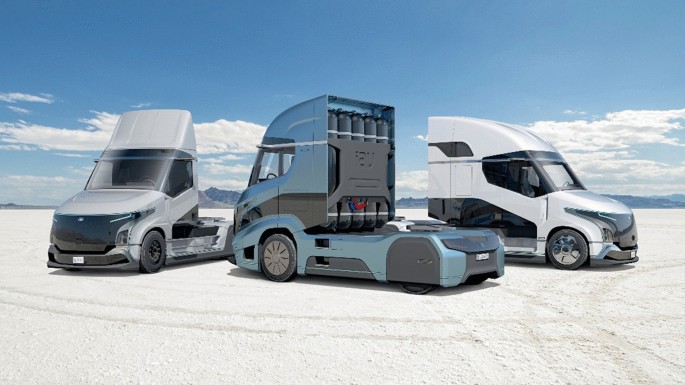VECV to invest around INR 1000 cr on multiple alternative fuel technologies for new-age CVs
New Delhi: Disruption is becoming commonplace in the new-age automobile industry. The work-in-progress scenario of the fuel technology landscape makes it more challenging for industry players as they have to prepare for multiple scenarios. And, that’s driving Volvo Eicher Commercial Vehicles (VECV) to invest “almost Rs 1,000 crore” on developing alternative fuel technologies.
VECV is working on new propulsion/fuel technologies such as BEV (battery electric vehicle), hydrogen ICE (internal combustion engine) and fuel cell technology, in addition to alternative fuels, to power its trucks and buses in the future. "We are working on that extensively. Today we have got one range of product line, but we’ll have parallely an EV range. Tomorrow we will have hydrogen ICE and the fourth will be a fuel cell one," says R S. Sachdeva, COO of Eicher Trucks and Buses, VECV, because we don't know which technology will succeed."
Key among them is battery electric vehicle technology, as it is the electric vehicle space where VECV is looking at having a sizeable presence starting next year, when it plans to launch some small commercial vehicles in the 2- to 3.5-tonne (GVW) range. Currently, its sole EV is a 5.5 tonner.
VECV's new efforts, and similar exercises by its industry peers too, are part of the overall decarbonization trend, which the government is also promoting in order to achieve the set target of 2070 for the country to achieve carbon neutrality.
Sachdeva, who is also an industry veteran, feels that in a disruptive technology environment, things may change significantly with “some disruption.” "So we have to ensure that we work extensively in all of the areas, and there are regulatory authorities and test agencies that are also contributing a lot," he says, in a session at a conference on Global Presence of Indian Testing Agencies - The Way Forward, held at NATRAX on Saturday.

India's advantages and challenges
As a country, India is also growing as a destination of choice for manufacturing and engineering. For example, VECV started manufacturing the Euro VI base engine for Volvo in Europe before the BSVI regulation came into effect in India. Competitive manufacturing and labor costs, coupled with India's frugal engineering strength, explain the establishment of global engineering centers in the country by global OEMs and Tier 1 suppliers.
Sachdeva points out that the cost of R&D in India can reach 1/8 of the same cost in Europe. In tests, the Indian cost can be a quarter of the European cost. However, while India's vehicle testing infrastructure has reached maturity, the uptake of tested and certified vehicles in India is "very low" in some parts of the world. Addressing this issue can boost exports as it will help Indian industry players reduce time to market abroad and also save costs significantly.
Harmonisation of standards will help, and the current era of technology transitions could make a stringer case for it. "This is the apt time when we can have the harmonised standards for the globe," says Sachdeva. There our testing agencies can work with all the global agencies and we can have more skillful standards.”
The senior industry professional also argued that the challenges can throw opportunities like industry and test agencies come together for global accreditation. "Similarly, we can have a tie-up: the Government of India, the test agency and the industry can have a joint memorandum of understanding, and the third is that we can have a unified and harmonized regulation of vehicles (including standards for new technologies)," says Sachdeva.
Such developments, if they take place, could not only make lives a little easier for industry players but will also pave the way for a bigger overseas play for them.
Also Read: Ampere Nexus launched: All you need to know